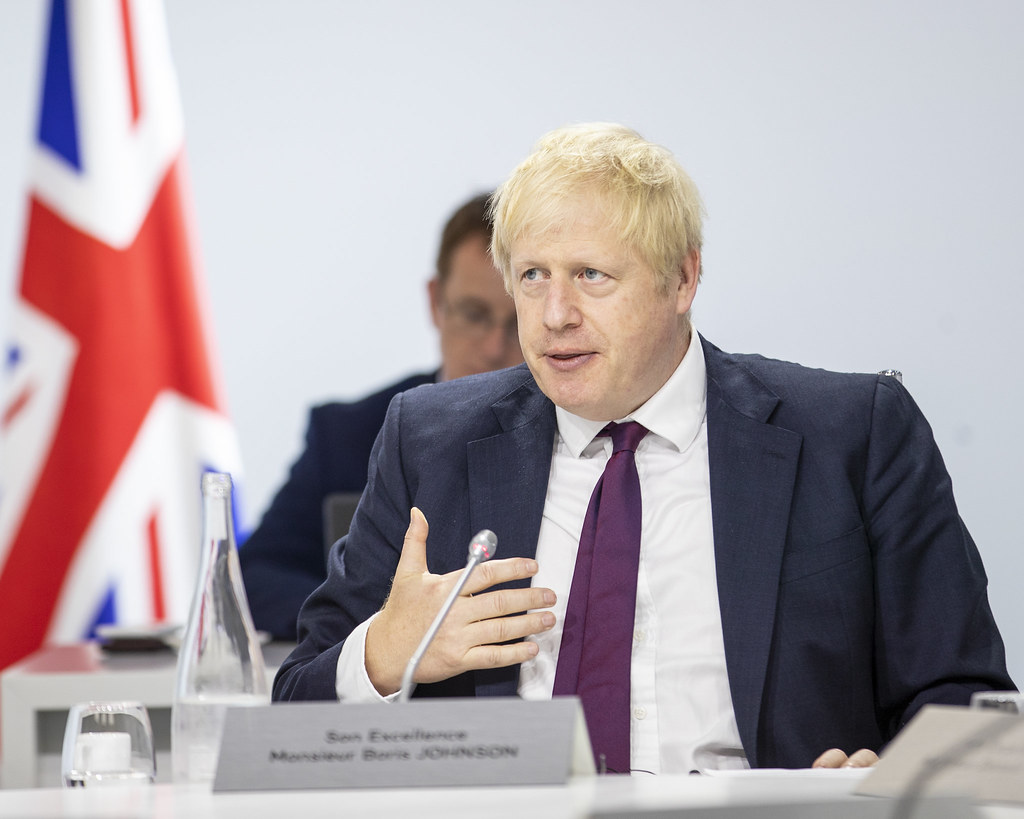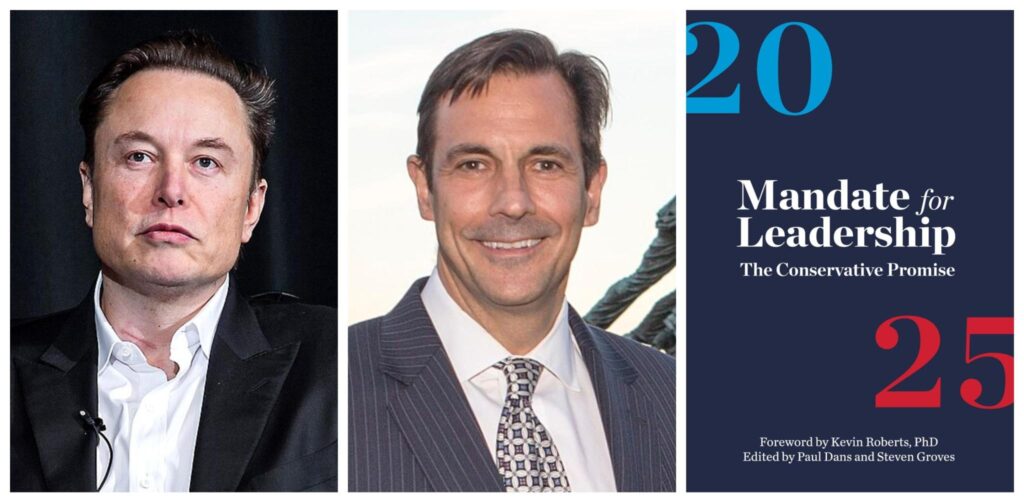This story is part of Covering Climate Now, a global collaboration of more than 220 news outlets to strengthen coverage of the climate story.
The UK talks a good game on climate change, but its efforts may be about to go into reverse under Boris Johnson’s new government.
The country has committed to slashing emissions to “net zero” by 2050. UK coal-fired power stations are virtually a thing of the past. And it has been awarded the honour of hosting next year’s UN climate summit, in partnership with Italy.
But that’s where the good news ends.
Because not only is the UK on course to miss its emissions targets from the mid-2020s onwards, a large number of its current executive either don’t seem to take the threat of climate change seriously, or have previously worked to dismantle many of the policies designed to tackle it.
Like what you see? Please support DeSmog and become a Patron today!
Faltering Leadership
The UK proudly touts its progress on meeting the climate challenge at both the national and international level. And to some extent, the “climate leader” reputation is deserved.
After all, the UK was the first to introduce binding long-term targets to reduce emissions in the form of the 2008 Climate Change Act, which passed through Parliament in a virtually unprecedented case of unanimity.
In June, it was the first major economy to strengthen that goal to “net zero” emissions, up from an 80 percent reduction under the original legislation.
And on the international stage, the UK has been a strong supporter of the UN COP (Conference of Parties) process that gave the world the Paris Agreement.
But recently, the UK’s reputation on climate change has begun to lose its sparkle.
Because although the UK has successfully met its first three “carbon budgets”, determined under the conditions of the Climate Change Act, it’s now set to miss its fourth and fifth. And that’s even before the new “net zero” goal is taken into account.
Analysis also shows that a large chunk of the country’s emissions reductions have so far been achieved thanks to a cleaner energy sector and reduced energy demand. Other sectors like transport, agriculture, and buildings have been caught napping.
And just at a time when the UK needs to be introducing stronger policies if it wants to meet its upgraded “net zero” target, it finds itself headed by a cabinet of MPs for whom climate change has historically been low on their list of priorities.
Least Climate-Friendly Cabinet Ever?
Boris Johnson’s government draws heavily from the right-wing, libertarian wing of the Conservative Party, which is inherently sceptical about intervening in markets as a means of solving problems.
The newly appointed Housing Minister Esther McVey’s justification for refusing to back a “net zero” emissions target during the recent party leadership race is telling:
“If you want to guarantee failure, get politicians to set a target.”
Despite supporting “net zero” during the party leadership campaign, Johnson’s record on climate change leaves much to be desired.
As recently as 2015, he was writing newspaper columns praising the work of those who reject mainstream climate science, in this case weather forecaster Piers Corbyn, Labour leader Jeremy Corbyn’s brother:
“Piers thinks that whatever the role of humanity in affecting the temperature of the planet, that role is pitifully trivial next to the Sun, the supercolossal boiling ball of gas about which we revolve and which enables life on Earth.”
As Foreign Secretary, Johnson presided over a 60 percent cut in “climate attaches”, weakening the UK’s diplomatic efforts on climate change.
And this time last year, he was busy setting out his vision for Britain-under-Boris to the Koch-funded American Enterprise Institute, which wants to see the Paris Agreement torn up and has spread doubt about climate change for decades.
If his contributions to parliamentary debates are anything to go by, climate change isn’t on Johnson’s mind all that often. Analysis by Carbon Brief this month found he’d used the term just 10 times during his 10 years in the House of Commons, compared to Green Party MP Caroline Lucas’s 143.
Meanwhile Johnson’s newly appointed Leader of the House of Commons, Jacob Rees-Mogg, has decried “climate alarmism” as the cause of high energy prices, writing in The Telegraph: “Common sense dictates that if the Meteorological Office cannot forecast the next season’s weather with any success it is ambitious to predict what will happen decades ahead.”
Then there’s Foreign Secretary Dominic Raab, a strong supporter of the radical anti-tax campaign group the Taxpayers’ Alliance, which advocates scrapping the climate change levy, among other taxes.
Both International Trade Secretary Liz Truss, and Energy and Clean Growth Minister Kwasi Kwarteng, are members of the Free Enterprise Group of Conservative MPs, who have lobbied for further airport expansion and the widespread removal of regulations on business.
Truss cut subsidies for solar farms while Environment Secretary, claiming, without evidence, that they were harming UK food production. She has close ties to free-market thinktanks and lobby groups based in and around Westminster’s 55 Tufton Street, as well as U.S. groups such as the Cato Institute and the Heritage Foundation, which have played a key role in opposing climate policy in the U.S.
And in his first job on the front bench, Sajid Javid, now Chancellor of the Exchequer, used his power as Communities Secretary to overrule Lancashire County Council’s decision to block fracking in the area, sparking protests from the local community now running into their third year.
Read more about Boris Johnson’s anti-climate action cabinet
Another vocal advocate of fracking, including in national parks, is Home Secretary Priti Patel, a self-described “massive Thatcherite” who said “parts of the green lobby and its eco-extremist followers” should back the energy source if they “genuinely believed in tackling climate change”.
She’s also spoken admiringly of Turning Point, a right-wing student group that rejects climate science and has worked to counter fossil fuel divestment campaigns on U.S. campuses.
And all of Johnson’s cabinet signed up to the possibility of a “no deal” Brexit when they accepted the job, a change that experts say poses serious threats to UK climate policy.
Through his pursuit of a no-deal Brexit, Johnson lost a number of leading MPs who belong to the Conservative Environment Network, which pushes for stronger climate action within the party. Its manifesto includes a ban on fracking, support for onshore wind power and a reversal of the VAT increase on solar panels and battery storage.
Even if that hadn’t happened, though, the past three years of wrangling over the UK’s future relationship with the EU have prevented politicians from developing new, much-needed policies to tackle climate change.
Baroness Brown, Chair of the Committee on Climate Change’s Adaptation Committee, put it this way last week: “We have the ingredients to do good things in response to climate change but are not making use of them.”
“We have been distracted by Brexit,” she said.
And this year’s Green Great Britain Week has now been postponed for being too close to the UK’s scheduled EU departure date.
Climate Tug-of-War
Nevertheless, for supporters of climate action there may be some reasons to be hopeful.
Johnson’s notoriously unpredictable character could swing in the direction of strong climate action — his support for “net zero” during the party leadership contest potentially signalling a change of heart, even if his emphasis remains on innovating our way to that goal.
There’s also a chance he could be persuaded to take climate change seriously by his girlfriend Carrie Symonds, an outspoken environmentalist.
And there have been some been some announcements from government in recent weeks that will have encouraged climate advocates: a £400 million fund for developing rapid charging points for electric vehicles, an extra £30 million for staffing and resources allocated to “net zero” work, and a doubling of the UK’s contribution to an international fund created to support developing countries reduce their emissions.
And although the Conservative Environment Network’s caucus of MPs may be slightly diminished, five of its “alumni” now have ministerial positions, including Simon Clarke at the Treasury, and Rebecca Pow, Theresa Villiers, and Zac Goldsmith at the environment department.
Along with Johnson, Villiers and Goldsmith have spent much of their political careers opposing the expansion of Heathrow Airport, meaning the future of that project is now looking less certain than it was.
So the prospects for strong action on climate change under Boris Johnson appear mixed. His cabinet is torn between the libertarian instincts of key cabinet members and other, generally more junior, ministers who have shown genuine interest in tackling the issue. Only time will tell whether this Government, however long it lasts, ends up accelerating climate action in the UK or leaves it in the doldrums.
Photo credit: Number 10/Flickr/CC BY–NC–ND 2.0
Subscribe to our newsletter
Stay up to date with DeSmog news and alerts







